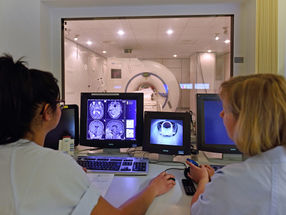Geron publishes studies demonstrating engraftment of human embryonic stem cell-derived cardiomyocytes in the rodent heart
Advertisement
Geron Corporation announced the publication of studies showing that cardiomyocytes differentiated from human embryonic stem cells (hESCs) engraft when transplanted into the rat heart. The results provide proof of concept that transplanted hESC-derived cardiomyocytes survive and retain properties of cardiomyocytes, important for their use in the treatment of heart failure and myocardial infarction.
In the studies reported in the American Journal of Pathology, Dr. Charles Murry and his colleagues at the University of Washington, in collaboration with scientists at Geron Corporation, produced cardiomyocytes from hESCs and injected the cells into the left ventricular wall of normal healthy rats. The transplant was examined one and four weeks after injection and human cells were detected in the rat myocardium at both timepoints. At the four week timepoint, the grafted human cardiomyocytes were identified using characteristic markers including, sarcomeric actin, (alpha) and (beta)- myosin heavy chain, and myosin light chain 2v. Approximately 10% of the cardiomyocytes at the four week timepoint retained proliferative capacity, thereby potentially enhancing engraftment. Both host and graft derived angiogenesis (new blood vessel formation) was observed, critical to sustaining the viability of the graft. No evidence of tumor formation was seen.
Other news from the department science

Get the life science industry in your inbox
By submitting this form you agree that LUMITOS AG will send you the newsletter(s) selected above by email. Your data will not be passed on to third parties. Your data will be stored and processed in accordance with our data protection regulations. LUMITOS may contact you by email for the purpose of advertising or market and opinion surveys. You can revoke your consent at any time without giving reasons to LUMITOS AG, Ernst-Augustin-Str. 2, 12489 Berlin, Germany or by e-mail at revoke@lumitos.com with effect for the future. In addition, each email contains a link to unsubscribe from the corresponding newsletter.

























































